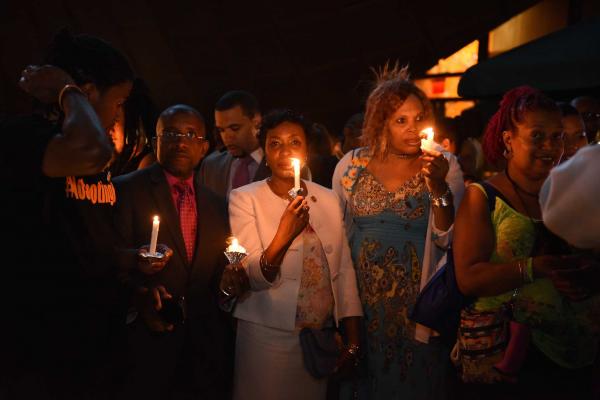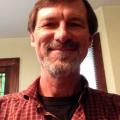I was working on a Father’s Day blog last week about how parenting is a plunge into the unknown. It was also about how we’re all, in a sense, parents to each other’s kids. The way we treat them makes an impact, for better or worse.
Before I could finish it, I heard the news about Charleston. The parenting piece remains unfinished. What happened in that church is stuck in my brain and in my soul.
Those images – they shake you.
Nine people gunned down in a church while discussing the gospel of love, killed by a 21-year-old man who dived into the toxic tide of fear and hatred that washes through our society every day.
He took nine lives and, in a sense, his own.
And your heart just hurts.
It hurts for the families of the church members. For the family of the 21-year-old man. For our society.
So much sickness. Such deep pain.
In the aftermath, we’ve watched the families grieve and forgive. We’ve heard people talk about the need for love and healing. And we’ve been reminded that we live in a twisted society.
Some people insist this wasn’t a crime of hate but of illness, as though the two are exclusive. We’ve heard the same things that we’ve heard after each of our many massacres, the ones at churches and schools and theaters and shopping malls and offices and military bases.
It goes something like this:
Now is not the time to talk about it. It was just an isolated incident, one act by one sick person. Don’t make too much out of it. Nothing’s wrong with our society. No change is needed.
Sure, our society is saturated with violence and weapons, from our movie screens to our street corners. But we’re not responsible for it. Nothing should be done about it. Change will only make things worse.
If anything, what we need is more weapons. Have pastors carry guns. Then it will be safe to stand at the pulpit and read those passages about laying down our weapons and loving our enemies and doing good to those who want to hurt us.
Yeah, that gospel.
It’s understandable, though, isn’t it? Our world can be scary. You see what happened in Charleston and hear all the ugly comments, and it overwhelms you and makes you want to crawl into some hole somewhere.
And then you realize: That’s the problem.
The sickness in our society is driven by the way we mistrust and pull away from one another; how we decide to care only about ourselves and our immediate families; the way we choose to serve only those who are like us – same race, ethnic background, sexual orientation, religion, political views.
Everyone else gets minimized and pushed away. We arm ourselves to protect our shrinking little space. We live like moles, wary of predators.
In guns we trust. In fear we live.
And the darkness deepens.
On the day that the Rev. Martin Luther King Jr., was shot in Memphis, Bobby Kennedy stood on a flatbed truck in a poor neighborhood of Indianapolis and broke the news to the crowd.
“In this difficult day, in this difficult time for the United States, it is perhaps well to ask what kind of a nation we are and what direction we want to move in,” Kennedy said.
Kennedy chose to follow King’s example. He spent the last months of his life advocating love, compassion, forgiveness, and justice. He, too, paid the price for doing so.
And maybe that’s at the heart of all of this. We have to decide whether we want to continue living in fear and darkness, or whether we are willing to take the risk and pay the price for redeeming the world with love.
Love always involves a cost, willingly paid.
Love challenges our fears and hatreds, especially the ones inside ourselves. Love refuses to accept indifference. Love makes us willing to listen and talk and change.
Love shows us that we’re far more alike than different. Love reminds us that we are all equally beloved children of the same loving parent.
Love isn’t sissy stuff. It takes great courage.
We’ve all just seen what it looks like.
How it invites a young man from a different race to enter and join the discussion, even though he may be packing hate as he walks through the front doors.
There’s a risk involved, but love is offered anyway. A radical, revolutionary love.
A love so audacious that it has the power to overcome and change.
Got something to say about what you're reading? We value your feedback!

